(This post is by Mark Paricio, a PolarTREC teacher accompanying the Polaris Project this year.
To read all of Mark’s posts, go to: http://www.polartrec.com/expeditions/siberian-arctic-systems-study )
I thought for sure that I would lose a few pounds roughing it in extreme northern Siberia. You know – competing with bears for available game or fishing by hand in the rivers… I was wrong. Very, very wrong!
Mealtime at the Northeast Science Station
Yesterday, I had a spare hour between drilling and lunch, so I went to the dining hall to write my blog. The smell from the kitchen was just too good not to poke my head in! The kitchen staff was making moose meat pies. The crust tasted like the best combination of a donut and a hot pretzel that you can possibly imagine. The moose meat melted in your mouth. Needless to say, I’m going to need to those pounds when I get home. Although I miss having lots of fresh fruits and vegetables (they are extremely expensive to transport to Cherskiy!), I definitely enjoy the fresh breads, homemade soups, and meals here.
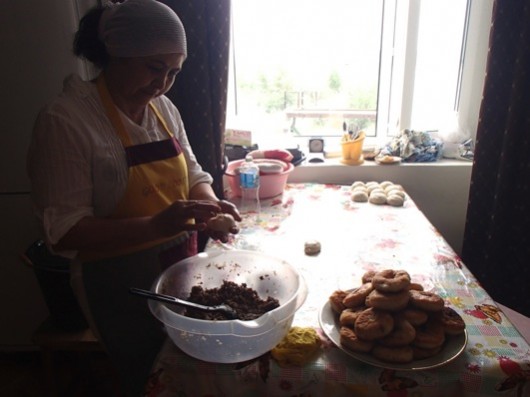
Khalida Dautova stuffs the fresh homemade dough with the moose meat filler.
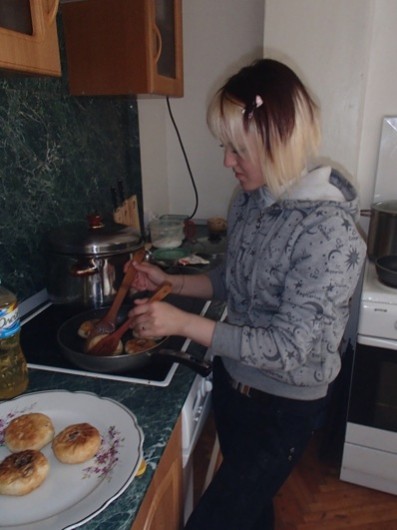
Yuliya (Julia) Igoreva cooks the moose meat pies on the stove. The smell was amazing!
Our meal schedule is breakfast at 9:00 a.m., lunch at 2:00 p.m., and dinner at 9:00 p.m. This allows for early sampling before breakfast and a full day in the field to take advantage of the 24-hour sunlight. Periodically, a team will be out in the field and miss a meal or two. When that happens, the kitchen packs them a meal. Otherwise, surveys and activities are planned around the meal schedule because no one wants to miss the meals or the lively conversation, usually focused on the science that people are doing.
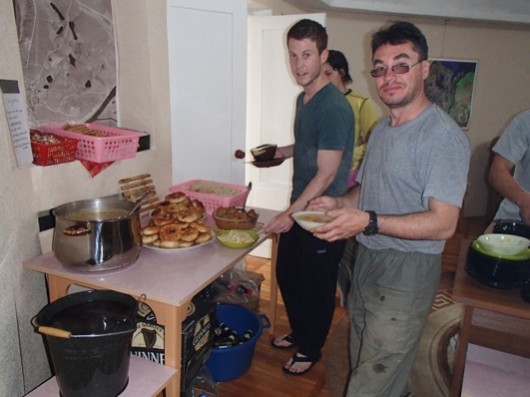
(L to R) Dr. Dave Young and Dr. Sasha Kholodov line up for meat pie and soup. Dave is an emergency room doctor from Massachusetts General Hospital who is traveling with us.
The Meetings that Nobody Misses
At the conclusion of each meal, Max Holmes, the leader of the Polaris Project holds a brief meeting to allow each research team to report in on what they have been doing and what their plans are after the meal. Not only does this help coordinate resources, such as boats, trucks, and lab equipment, but it also gives us a chance to cover safety issues as they arise. Additionally, when one team has a really great experiment coming up, such as the experimental fires or drilling through an ice lens in the permafrost, other research teams can go and observe their activity. In this manner, everyone gains a better understanding of the entire Siberian Arctic ecosystem beyond the scope of their own expertise.

Max Holmes leads an after-breakfast debriefing to cover the agenda for the day.
Food for Thought
Perhaps the most remarkable part of mealtime is the questions that get asked between the all the members of the Polaris Project. These are the most curious people I have been around in a long time. There is always something new to learn or a different perspective on an experiment or issue to contemplate.
Stay curious my friends! – Mark Paricio


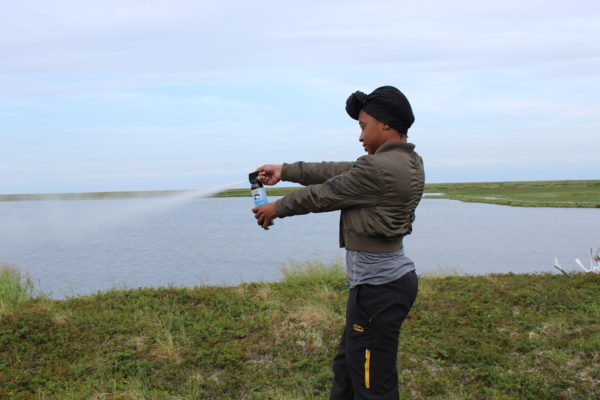
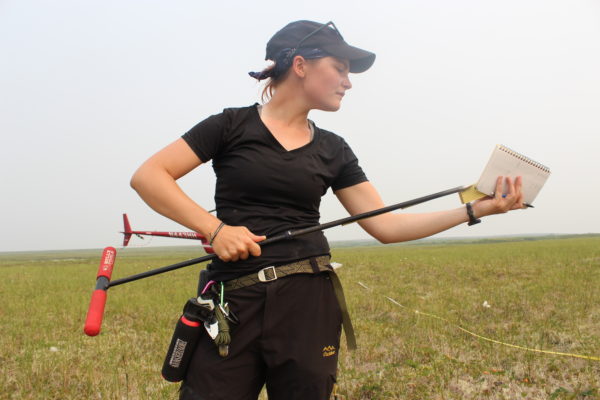
Comments(4)-
-
-
-
Dallas Murphy says
July 11, 2012 at 1:58 pmDear Polaris people,
I admit to a twinge of nostalgia reading Mark’s posts for the people (particularly returnees, Jorien, Paul, Sam, and of course Max), the place, the bugs not so much. I wish you all the best, and look forward to reading more about the activities and observations.
It was a wonderful experience for me, as no doubt it will be for you.
All my best, Dallas
Dallas Murphy says
July 11, 2012 at 1:59 pmI forgot to mention John, can’t forget John.
Again, all best, D.
John Schade says
July 14, 2012 at 3:28 amMark, I really appreciate your thoughts. I am here at home and feeling a bit melancholy about not sharing this with you. This is the first time I have stayed behind and not been a participant and it is sometimes hard to read about your experience without feeling some sadness. I miss the place. But I am also filled with joy that the power of the people and the place are resonating with everyone there. It is a special place, and a special group of people.
And Dallas, thanks for remembering me, It is nice to see that you are paying attention and that you feel some affection for the place.
Mark Paricio says
July 14, 2012 at 4:52 amJohn – Thanks for the positive comments! It is a powerful experience and, indeed, a remarkable group of people and visionary program.
MP